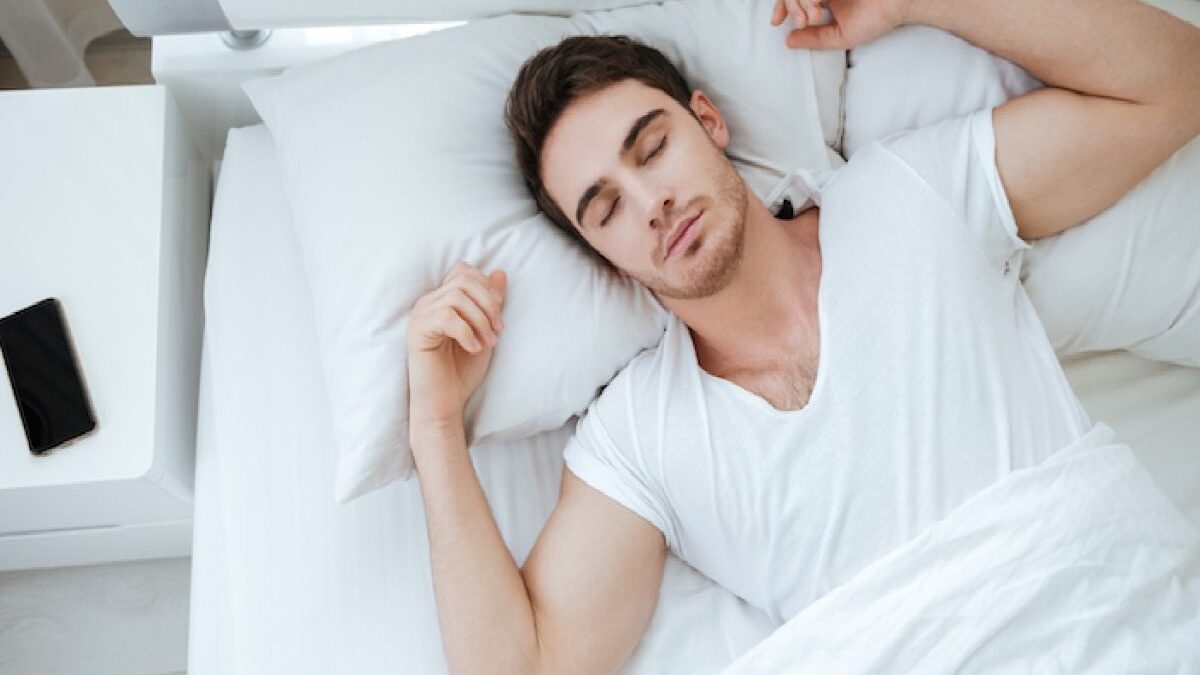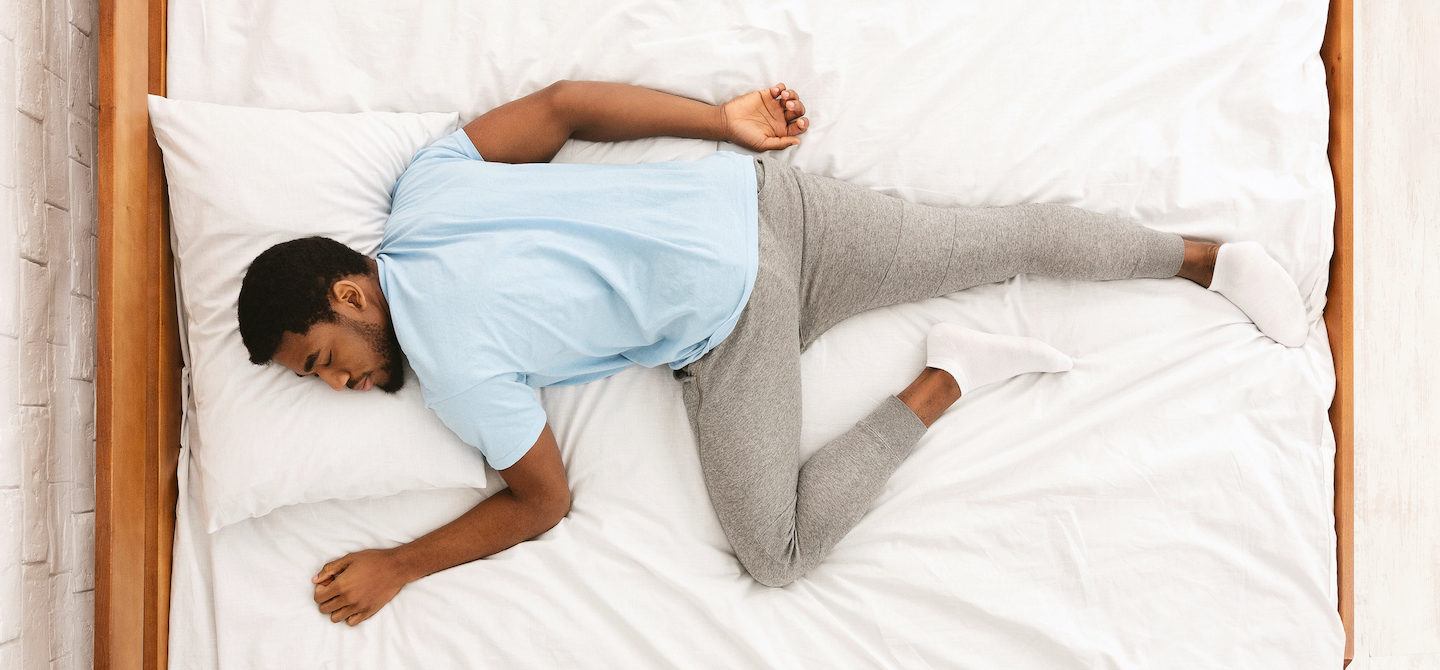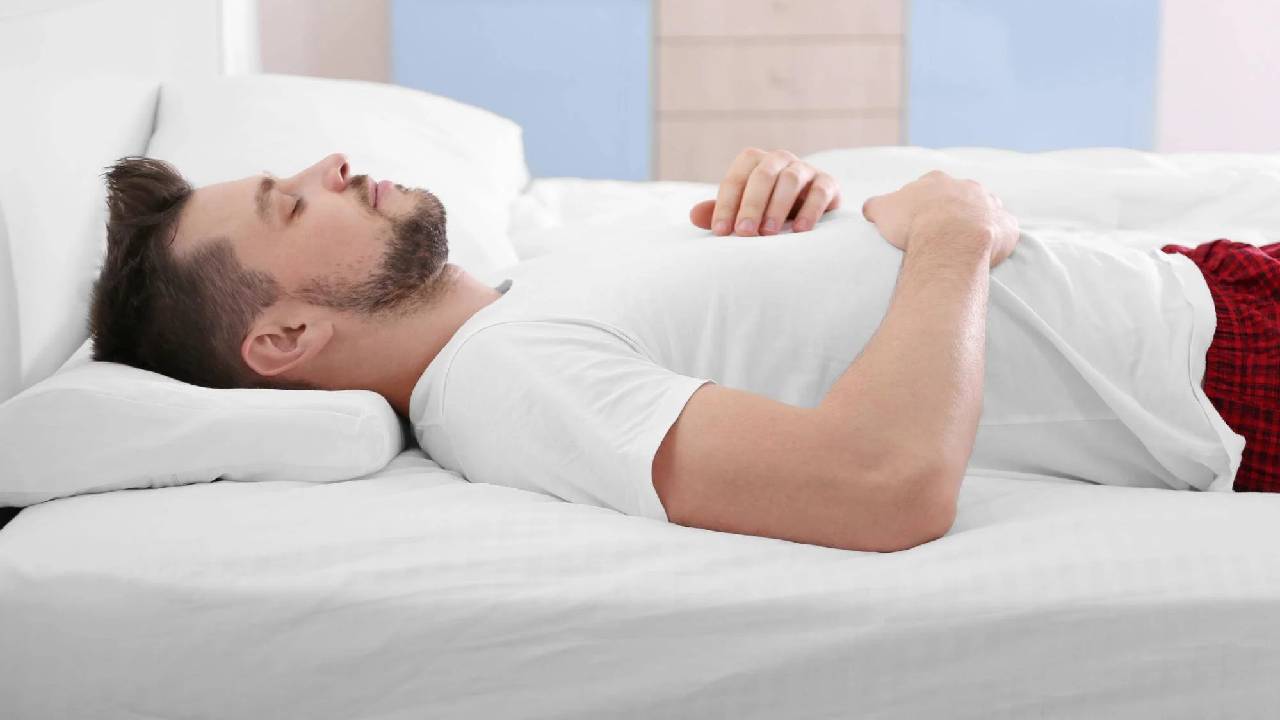
There are many people who suffer from insomnia. They all have their own opinions about how to fix the problem. The most common solution to insomnia is changing your sleeping position. Why? Why?

Gravity pulls your spine down when you sleep on your stomach. This reduces circulation and stretches ligaments and muscle. The weight of the head and neck will pull your lower back down when you sleep on your stomach. It also reduces the blood circulation and stretching of your muscles.
Sleeping problems and Insomnia
People who sleep on their stomachs are more likely to experience insomnia, breathing difficulties, and even shortness during the night. It is because the stomach is not properly supported and blood flow is poor. Those who sleep on their backs complain of tension and headaches. Those who sleep on their sides also complain of joint pains and aches in the back. The neck and head can hang freely when you sleep on your side. This reduces neck stiffness, and allows for a more restful night’s sleeping.
These aren’t the only advantages of sleeping in a good position. There are many more. When you sleep in a different position than your usual one, it gives your body a chance for re-balancing. This promotes good health because your weight is distributed evenly. After a long workday or school day, you can relax and soothe your frayed nerves.
Apnea
Sleeping on your side can also help to prevent sleep apnea. It is a serious disorder that causes breathing to be obstructed while sleeping. The sufferers usually wake up exhausted and not refreshed. Sleeping on your side allows you to get a better night’s sleep because your airway will not be blocked.
Despite this, many people don’t think that sleeping in the correct position is beneficial. Do not believe this. Doctors and researchers have studied how sleeping positions impact our health for many years. They have discovered that sleeping on your back has many benefits. It is important to note that not every position promotes the same level of comfort and relaxation.
How does sleep position affect the quality of your sleep? The type of sleeping position is important. Sleeping on the stomach is most comfortable for many people. If you prefer to sleep on your stomach, also known as the fetal position, then the head of the sleeper may slide upwards while they sleep, causing neck pain. Sleeping position can affect sleep quality depending on the sleeping habits of each individual.
If you ask someone most likely to be affected by the effects of sleeping one way, like pregnant women, they may be surprised to learn that sleeping on your back does not impact sleep. The airways do not become blocked because the fetus rests on the mother’s stomach. It is actually more comfortable for pregnant women to sleep on their stomachs. The baby in a woman’s womb will not be hurt because it is between her legs.
Snoring
If you’ve been wondering “how sleeping positions affect sleep”, you may be surprised by the answer. If the mattress is too firm, it may make snoring more severe. If the mattress is too firm, there will be less air flow and your passages could constrict. This can make sleeping more difficult. It is a good idea to pick a mattress with the right density and thickness for you. You should buy a mattress at a store that allows you to try out different sizes, such as 38 inches ,, so you can decide which one is right for you.
You might also wonder how habitual sleeping positions can affect sleep. It is normal for some to change positions throughout the day. However, this shift in position is not healthy. Try sleeping in a different position for your evening nap if you usually sleep in a reclined posture at work. You will experience the benefits of the sleeping position without experiencing any side effects, such as fatigue or memory loss.
Sleeping on Backs

The weight of the head and neck are also carried by our back muscles when we sleep on our stomachs. Gravity helps keep our spines relatively straight. The head and neck of a side sleeper are on the outside spine. Gravity and the position and position of head and neck pulls the eye away from ground and distorts image of eyes and position of face.
A wedge pillow or wedge can be used to counteract this problem. It will keep the head and neck in a slanted position, which will reduce the effect of gravity on your spine. These devices can be bought online from reputable manufacturers of sleep pillows, but they are quite expensive. Sleepers can also get by using a small bag and a pillow. This is the most comfortable compromise between side and back sleeping. It will keep you fit and comfortable as long as you maintain a good posture during the entire sleep process.
Side Sleeper

The side sleeper has some benefits. The position allows the neck and head to rest comfortably. This also means the entire body, except for the hands, will be in the same position. It is useful for people who spend hours sitting down. Sleeplessness can cause a variety of problems including fatigue, reduced alertness, and a reduction in concentration.
The side sleeping position is the best answer to the question “How does sleeping position affect your sleep?”. In this position, the head, neck, and spine are in their natural positions, which allows for a nearly complete seal with the Earth. There are no obstructions in the breathing passage, so it is less likely that airways will be blocked. This is often what causes sleep apnea bed wedges. The spine is less stressed, resulting in a more restful night of sleep.
The conclusion of the article is:
The answer to this question is not clear. Those who sleep on their sides are more comfortable and feel better rested when they wake up than those who sleep backwards. The same is not true for those who sleep on their backs. Some people don’t know if it is better to lay down their head or sit up straight. As a general rule, keep your head above your heart. If you are comfortable with this position, you can place your head on the pillow.
Related posts


